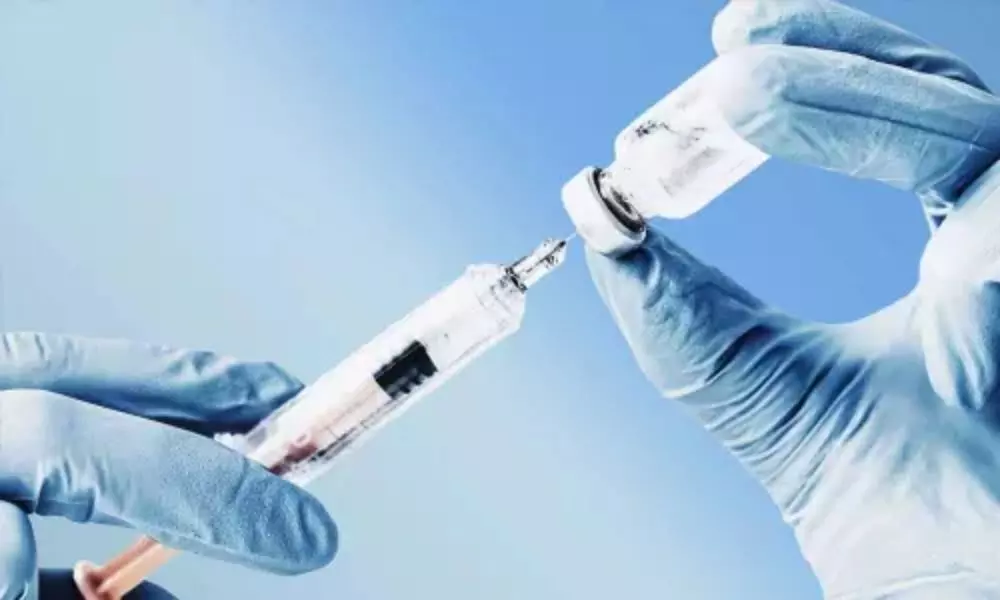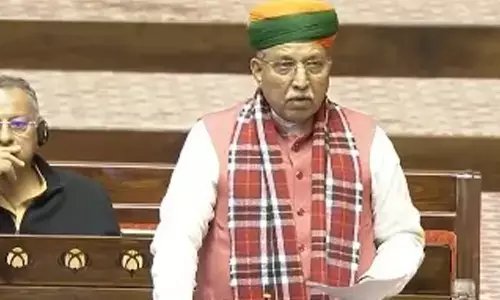IISc researchers developing vaccines to treat Covid, HIV

Five more Covid vaccines in pipeline
Researchers at the renowned Indian Institute of Science (IISc) in this tech city are developing vaccines to treat Covid-19 and HIV (human immunodeficiency virus), an official said on Tuesday.
Bengaluru: Researchers at the renowned Indian Institute of Science (IISc) in this tech city are developing vaccines to treat Covid-19 and HIV (human immunodeficiency virus), an official said on Tuesday.
"The researchers have developed a heat-tolerant Covid-19 vaccine candidate and a rapid method to identify specific regions on the HIV envelope protein that are targeted by anti-bodies, which can help design effective vaccines," said the official in a statement here.
The institute's molecular bio-physics unit professor Raghavan Varadarajan is leading the team of researchers on developing the vaccines.
"The Covid-19 vaccine candidate contains a part of the spike protein of the novel coronavirus called the receptor binding domain (RBD), the region that helps the virus stick to the host's cell," said the official.
The vaccine candidate is being developed in collaboration with Mynvax, a start-up, co-founded by Varadarajan and incubated at a lab in the institute.
"When tested in guinea pig models, the vaccine candidate triggered a strong immune response. It also remained stable for a month at 37 degree Celsius, and freeze-dried versions could tolerate temperatures as high as 100 degree Celsius," noted the statement.
Such 'warm' vaccines can be stored and transported without expensive cooling equipment to remote areas for mass vaccination although most vaccines need to be stored between 2-8AoC or even cooler temperatures to avoid losing their potency.
The difference between the vaccine being developed at the institute and other Covid vaccines is the former's candidate uses only a specific part of the RBD, a string of 200 amino acids instead of the entire spike protein.
The researchers inserted genes coding for this part via a carrier DNA molecule, called a plasmid, into mammalian cells, which churned out copies of the RBD section.
The team also found that the RBD formulation was as good as the full spike protein in triggering an immune response in guinea pigs but much more stable at high temperatures for extended periods.
"We have to get funds to take this forward to clinical development," said Varadarajan, adding it would include safety and toxicity studies in rats along with process development and GMP manufacture of a clinical trial batch, before they are tested in humans.
As the studies can cost Rs 10 crore, the professor said the team might not be able to take it forward unless the government funded it.
The second study focused on HIV, the virus that causes AIDS, a disease for which there is no vaccine despite decades of research.
The team, including researchers from other institutes, sought to pinpoint which parts of the HIV's envelope protein are targeted by neutralising antibodies a' the ones that block virus entry into cells, not flag it for other immune cells to find.
"Vaccines based on these regions might induce a better immune response. To map such regions, researchers use methods like X-ray crystallography and cryo-electron microscopy though they are time-consuming, complicated and expensive," said the statement.
Hence, Varadarajan and his team mutated the virus so that an amino acid called cysteine would pop up in several places on the envelope protein. They added a chemical label to stick to these cysteine molecules and treated the virus with neutralising antibodies.
"In principle, researchers could adapt this methodology to any virus, including Covid-19," added the statement.
The studies were published in the "Journal of Biological Chemistry" and the "Proceedings of the National Academy of Sciences."














